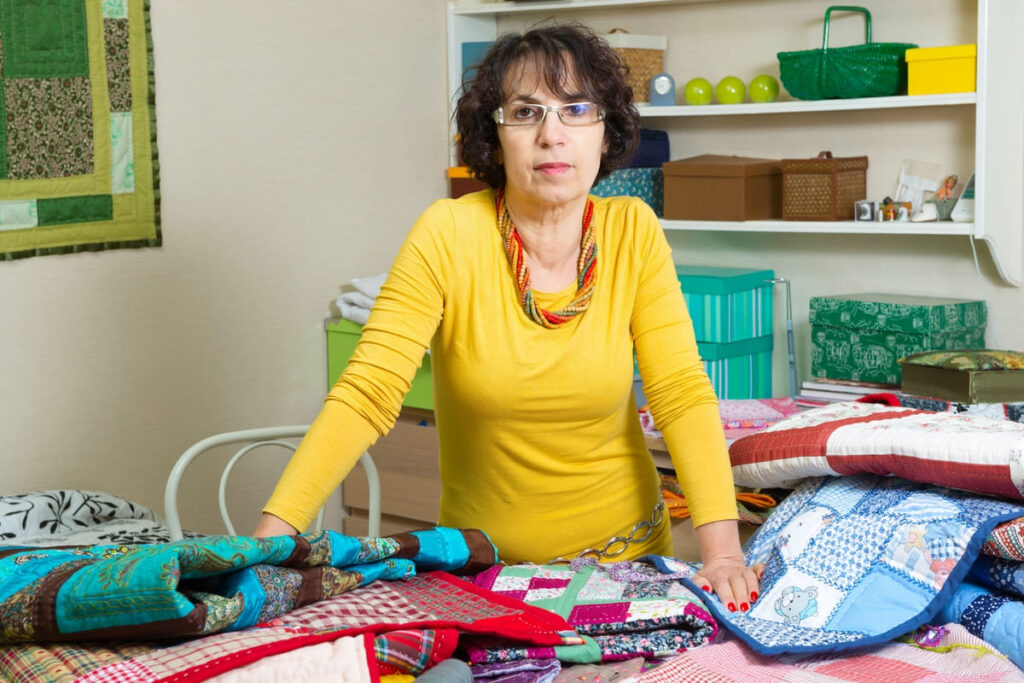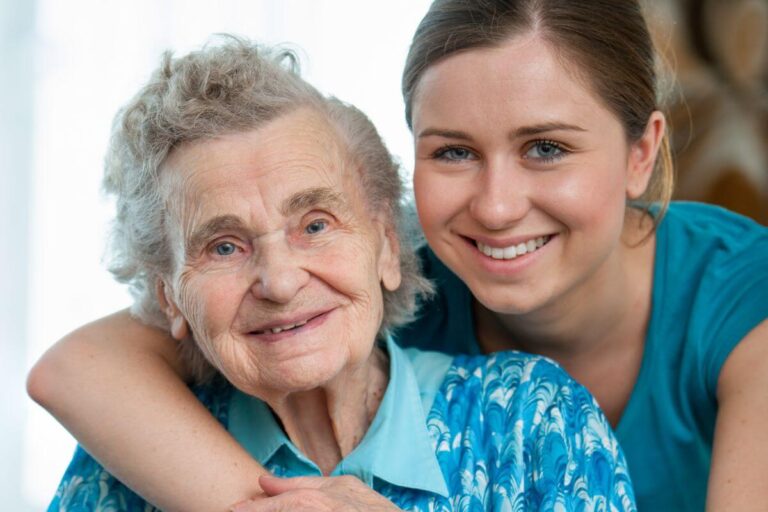15 Ways Empty Nest Life Is Messier Than You Imagined and How to Handle the Chaos
Empty nest life often looks peaceful from the outside, but when your kids move out, things can get unexpectedly complicated. You might find yourself facing emotional ups and downs, changes in daily routines, and a quiet house that feels less like freedom and more like emptiness.
What you might not realize is that adjusting to this new phase often involves dealing with messier feelings and challenges than you imagined. It’s a time that pushes you to redefine your sense of purpose and figure out how to fill your days in ways that feel meaningful.
Sudden burst of quiet feels strangely eerie

When the house shifts from busy to silent, it can catch you off guard. That sudden quiet is not exactly peaceful; it feels a bit strange, almost like the walls are holding their breath.
You might find yourself noticing every small sound—like the hum of the fridge or the ticking clock—because there’s no usual noise to drown them out. It can feel a little eerie, like something’s missing even though everything looks fine.
This quiet can make you feel unexpectedly alone, even if you live with someone else. The absence of daily chatter or footsteps throws off the rhythm you were so used to. It’s a reminder that life has changed, even if you haven’t quite processed it yet.
Rediscovering your personal identity feels confusing

You spent years focused on parenting, and now suddenly, that part of your life is quieter. It’s normal to feel a bit lost when your role changes overnight. You might find yourself asking, “Who am I without all the daily chaos?”
Your sense of purpose can get cloudy. Without the routine of taking care of kids, you have space to figure out what really matters to you. But that space can feel more like emptiness at first.
You may struggle with self-doubt or question your place in the world. That’s a common response when your identity shifts so dramatically. You’re not the parent you used to be, and it’s okay to feel unsure.
This phase invites you to explore new interests or reconnect with old passions. It’s a chance to redefine yourself on your own terms, even if it feels overwhelming right now. Take it slow; this part of life is about rediscovery, not perfection.
House feels too big without daily kid chaos

The silence hits you hard when the kids move out. Your home, once buzzing with noise and activity, suddenly feels oddly empty and too large.
You might find yourself wandering through rooms that no longer serve a purpose. The constant mess and clutter you once dreaded are now oddly missed.
Without the sounds of daily chaos, the house can seem eerily quiet. You may notice how big the spaces really are when there’s no one filling them up.
This shift can leave you feeling a bit off balance. The routines that revolved around the kids are gone, making your spacious home feel strangely hollow.
You miss spontaneous kid hangouts more than expected

You might not realize how much you’ll miss those unplanned moments with your kids until they’re gone. Those quick chats over breakfast or last-minute invites to hang out suddenly feel like rare treasures.
It’s the little things—watching a show together, grabbing a snack, or just sitting in the same room—that fill up your day more than you thought. When the house gets quiet, it hits you how much those random hangouts helped keep things lively.
You might find yourself hoping for a text or call just to catch up, but that easy access disappears. The gap between planned visits can make those spontaneous moments you took for granted seem even more special in hindsight.
Weekend plans shrink and feel oddly empty

You might notice your weekends suddenly feel quieter than they used to. Without kids around, the usual chaos of activities, errands, and gatherings starts to fade away.
It’s normal for your weekend plans to shrink. Maybe you find yourself just hanging around the house more or missing that busy buzz you once had.
Dinner plans or family visits might feel less frequent or less urgent. Those traditions that used to fill your calendar now leave pockets of unexpected free time.
At first, this quiet can feel strange, even a little lonely. You might catch yourself wondering what to do with all the space on your schedule.
You may need to rethink how you fill your weekends, trying new hobbies or reconnecting with friends to replace the usual noise.
The empty silence isn’t forever, but it does take some adjusting. Your weekends become less about managing everyone’s needs and more about finding what feels good for you.
Old parenting roles linger longer than you want

Even after your kids leave home, your brain still thinks you’re in full-on parent mode. You might catch yourself worrying about them nonstop or feeling the urge to step in, even when they don’t need it anymore.
You’ll notice habits stick around—like calling to remind them to eat or checking in more often than usual. It’s hard to shake that caretaker mindset because it’s been part of your daily life for years.
Your home feels quieter, but your role feels confusing. You’re no longer the go-to decision-maker for your kids, but the urge to guide and protect doesn’t vanish overnight. It can leave you feeling a bit stuck between who you were and who you want to be now.
Letting go of these old roles takes time. You’ll need to remind yourself that your kids are growing into independence, even if it feels strange not to be the one in charge anymore.
Relationships with your partner shift in unexpected ways

When the kids leave, the dynamic between you and your partner changes a lot. Suddenly, you’re spending more time together without the usual distractions, which can feel both good and awkward.
You might find that you don’t share the same goals or interests like before. This can create some tension or distance if you’re not prepared for it.
At the same time, you may notice old habits or unresolved issues resurface. Without kids around, you can’t use parenting as a silent excuse for your disagreements anymore.
Some couples feel lost because their relationship was so focused on the family. It takes some effort to remember you’re a couple first, not just parents.
If you want to keep the connection strong, you’ll need to actively work on your relationship. Talking openly, trying new things together, or even seeking couples counseling can help you navigate this phase better.
Finding new hobbies is harder than it looked

You might think that once your kids move out, you’ll easily pick up new hobbies and fill your time. But actually finding something that truly grabs your interest can take longer and feel more frustrating than you expected.
It’s not just about choosing a hobby; it’s about reconnecting with what excites you. Some activities you enjoyed before may not feel the same anymore.
Trying new things like gardening, painting, or woodworking sounds great, but getting started can mean dealing with doubts or feeling out of practice. Sometimes, you might struggle to stick with something without the structure that parenting provided.
You’ll likely have to experiment a few times before you find something that fits your lifestyle and mood. The key is giving yourself permission to try and fail without pressure. It’s okay if your first few attempts don’t feel like a perfect match.
Closets get cluttered with forgotten kid stuff

When your children leave home, you might not immediately clear out all their belongings. Clothes that no longer fit, old backpacks, and random keepsakes often end up shoved in closets.
You probably tuck these items away because they hold memories or you’re unsure if your kids want them. Over time, these forgotten things pile up and create more mess than you expected.
It’s common to feel torn between nostalgia and the need to reclaim space. You want to hold onto memories but also want a tidy, functional closet. This mix can make it harder to decide what to keep or toss.
You might catch yourself holding on to “just in case” items that don’t really serve you anymore. Taking time to sort through and let go can help clear both your closets and your mind.
Your calendar suddenly has lots of wide-open space

You might not realize it until it hits you—a calendar once packed with every family event now looks almost empty. Those school plays, soccer games, and weekend hangouts vanish, leaving lots of wide-open space.
At first, it feels like a relief, but that empty schedule can be unsettling. You may find yourself staring at blank days wondering how to fill them.
Without constant appointments, you’ve got more freedom, but also more responsibility for how you spend your time. It’s easy to lose track or feel a bit aimless.
You might start overbooking yourself out of habit, or the opposite—under-scheduling and feeling restless. It takes a bit of trial and error to find a new rhythm.
This open space invites you to explore hobbies, reconnect with yourself, or just slow down. The key is to be patient as you adjust to this new kind of busy.
Suddenly becoming the family event planner

When the kids leave, you might find yourself suddenly responsible for organizing family gatherings. It’s not just birthdays or holidays anymore—sometimes you feel like you’re the glue holding everyone’s plans together.
You’re juggling schedules, sending reminders, and trying to figure out who’s coming and who’s not. It can get frustrating when people don’t respond or cancel last minute, leaving you scrambling.
This new role can feel overwhelming, especially if you didn’t expect to be the go-to for family coordination. You might miss your old role of just showing up and enjoying the event without the extra work.
At the same time, it’s a chance to shape what family time looks like now. You might try new ideas or smaller gatherings because the old ways don’t work as smoothly.
It’s a balancing act between staying connected and avoiding burnout. You’ll learn which events are worth the effort and which can be let go.
Grieving the loss even while feeling proud

You might feel a weird mix of pride and sadness when your kids leave home. On one hand, you’re proud of how far they’ve come. On the other, there’s a real sense of loss that can hit unexpectedly.
It’s normal to grieve this change, even if you know it’s part of life. Feeling sad or tearful doesn’t mean you’re not happy for them. It just means you’re human.
This kind of grief can feel heavy, like you’re missing a big part of your daily routine. You might cry without even realizing why, and that’s okay.
At the same time, remember that these feelings don’t cancel out the good stuff. You can feel proud and still mourn the quiet house or empty rooms.
It’s all part of adjusting to this new phase. Give yourself permission to feel both feelings. That balance is what helps you move forward.
Balancing freedom with feeling a bit lost

You suddenly have more time and space, which feels like freedom at first. No more constant running around or managing schedules. It’s a chance to focus on yourself in ways you might not have before.
But with that freedom can come a strange sense of being unmoored. You might find yourself wondering who you are outside of being a busy parent. It’s normal to feel a bit lost when your daily routine shifts so much.
Your home feels quieter, and the constant buzz is gone. That silence can feel peaceful but also a little lonely. You’re left with extra hours that don’t have a clear purpose yet.
Learning to balance this new freedom while adjusting to the empty space takes time. Be patient with yourself as you explore what feels meaningful now. It’s okay to feel mixed emotions during this transition.
Unexpected waves of loneliness hit at odd times

You might think once your kids move out, the feeling of emptiness will be constant or predictable. But it often hits in surprising bursts, out of nowhere. One minute you’re fine, and the next, a wave of loneliness crashes over you.
These moments can come when you least expect them—while doing something simple like making dinner or hearing a song you used to share with your kids. It feels strange because you thought you were ready for this phase, but the emotions don’t always line up with your expectations.
You may also notice that some days the house feels completely silent and too big. It’s not just missing your kids physically but missing the daily noise and energy they brought with them.
Learning to sit with these feelings and accept them can be a challenge. Sometimes, they pass quickly, and other times you learn something new about yourself through those quiet spells.
It helps to have a plan for when these waves hit—whether it’s calling a friend, diving into a hobby, or just acknowledging the feeling without judgment. It’s normal, even if it’s uncomfortable.
Feeling like you have to reinvent daily routines

When your kids leave home, your whole day can suddenly feel off. You’re used to rushing from one activity to the next, and now there’s a big empty space where that used to be.
You might find yourself wondering what to do with all that extra time. Without the usual schedule of school runs, sports, and meals, your daily rhythm needs a serious rework.
This change can feel messy because you have to figure out new habits from scratch. It’s not just about filling time—it’s about finding a new way to structure your life that fits this different stage.
You may try different things to create meaning in your days, like picking up hobbies or setting new goals. Some days this feels exciting, but other days it can be frustrating or confusing.
The important thing is you get to decide how your routine looks now. Breaking out of old patterns takes time. Give yourself space to experiment and see what feels right for you.







